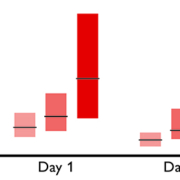Could H-FABP have potential benefit in diagnostics beyond cardiac health problems?
The rising incidence of Acute Kidney Injury (AKI) comes at a price. Patients tend to survive intensive care (ICU) but will be discharged with various degrees of chronic kidney disease (CKD), placing an increasing strain on the healthcare system. At present, the cost to the NHS is estimated to be between £434 and £620 million (€490-700 mil), which is more than the costs associated with breast cancer, or lung and skin cancer combined. However, this increased cost and strain could be unnecessary, as research has shown that 30% of the reported 100,000 deaths in the UK could have been prevented with the right care and treatment.1,2 These unfavourable statistics are the result of late detection of AKI, as to date, a superior method of detection has not been found.
Recent research has supported the use of Heart Type Fatty Acid Binding Protein (H-FABP), a traditional cardiac biomarker, and its potential utility as a clinical diagnostic biomarker for cardiac surgery-associated AKI. Cardiac surgery associated acute kidney injury (CSA-AKI) is a serious complication affecting approximately 33% – 94% of patients undergoing heart surgery, it is also associated with a high incidence of mortality and morbidity.3
A number of studies have been conducted focusing on measuring the levels of H-FABP before and after surgery. It was found that patients who developed AKI had higher levels of H-FABP both pre and postoperatively compared to patients who did not have AKI. Figure 1 shows the perioperative H-FABP levels based on AKI status. Day 1 represents 0 – 6 hours after surgery, Day 2 represents 24 – 48 hours after surgery and Day 3 represents 48 – 72 hours after surgery. As illustrated by the box plots, patients with severe AKI had the highest levels of H-FABP across all 3 days compared to those with any and no AKI.4
Researchers found that post-operative (Day 1) H-FABP levels in patients with severe AKI increased by 13-fold and an increase of 8 -fold was observed for the same time point in patients who experienced any AKI. In day 2 and 3, H-FABP levels began to decline, however, a slower rate of decline was observed in patients who experienced AKI.4
In the follow-up of this study, 10.8% of the patient cohort died which was found to have associations with preoperative levels. Patients with elevated preoperative log (H-FABP) were significantly more likely to die compared to patients with normal or low levels. They concluded that H-FABP explained <10% of the variability in known kidney injury biomarkers and that it is possible that H-FABP is capturing a different aspect of the pathophysiology of AKI when compared to traditional kidney biomarkers.4
Further studies conducted looked at the prognostic value of H-FABP levels collected on admission and found that a level of ≥ 15.7 ng/ml and the presence of AKI were independent predictors of 180-day mortality. Figure 2 is a Kaplan-Meier survival curve which shows that prognosis, including all-cause death, had a significantly poorer outcome for mortality in the high serum H-FABP with AKI group.4
Patients with H-FABP levels of less than 15.6 ng/ml and no AKI had nearly a 100% chance of event free survival over the 180 days. In comparison, patients with levels greater than 15.7 ng/ml, with AKI had a steady decrease in event free survival over the 180 days levelling out at just above 40%.4
Randox Laboratories are manufacturers of an automated biochemistry H-FABP assay exhibiting clinical utility for the early risk assessment of AKI including cardiac surgery-associated AKI. Applications detailing instrument-specific settings are available for a wide range of biochemistry analysers.
References
1. Kidney Care UK. [Online] [Cited: February 15, 2019.] https://www.kidneycareuk.org/news-and-campaigns/facts-and-stats/.
2. Centers for Disease Control and Prevention. [Online] March 16, 2018. [Cited: February 22, 2019.] https://www.cdc.gov/mmwr/volumes/67/wr/mm6710a2.htm.
3. Prediction and Prevention of Acute Kidney Injury after Cardiac Surgery. Shin, Su, et al. s.l. : Hindawi, 2016.
4. Perioperative heart-type fatty acid binding protein is associated with acute kidney injury after cardiac surgery. Schaub, J, et al. 3, s.l. : NCBI, 2015, Vol. 88.



